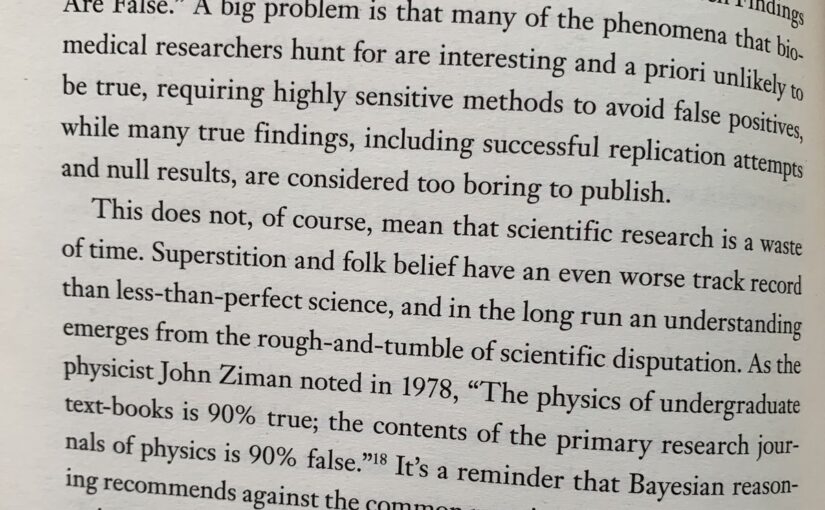But the problem is not just with journalists. The physician John Ioannidis scandalized his colleagues and anticipated the replicability crisis with his 2005 article “Why Most Published Research Findings Are False.” A big problem is that many of the phenomena that bio. medical researchers hunt for are interesting and a priori unlikely to be true, requiring highly sensitive methods to avoid false positives, while many true findings, including successful replication attempts and null results, are considered too boring to publish.
This does not, of course, mean that scientific research is a waste of time. Superstition and folk belief have an even worse track record than less-than-perfect science, and in the long run an understanding emerges from the rough-and-tumble of scientific disputation. As the physicist John Ziman noted in 1978, “The physics of undergraduate text-books is 90% true; the contents of the primary research journals of physics is 90% false.” It’s a reminder that Bayesian reasoning recommends against the common practice of using “textbook” as an insult and “scientific revolution” as a compliment.
A healthy respect for the boring would also improve the quality of political commentary.
Excerpt from: Rationality: What It Is, Why It Seems Scarce, Why It Matters by Steven Pinker


